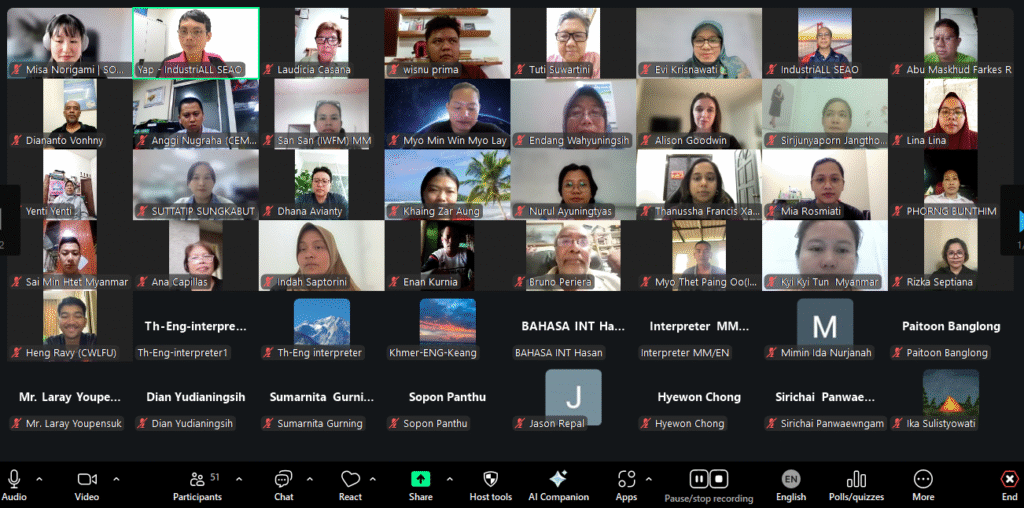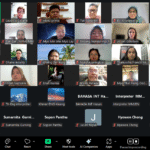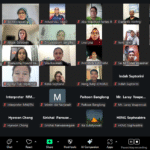Read this article in:
English
20 October, 2025Seventy trade unionists from across the South East Asia region attended a virtual training on investigating corporate structures, supply chains and finances to strengthen their strategic research skills.
The session, held on 9 October, addressed one of the key challenges in worker organizing and trade union campaigns—opaque corporate information. Without access to reliable financial data, unions face significant obstacles in effective collective bargaining.
In the training, trade unionists learned systematic strategic corporate research skills, such as understanding different legal entities of companies and related stakeholders, online available investigation tools, and building basic supply chain maps and trace links of each process.
The participants also learned how to use the Open Supply Hub to access corporate information such as production facilities, suppliers and customers. Basic analysis of financial statements, annual reports and investor relations webpages were done.
Misa Norigami, corporate research of the Center for Research on Multinational Corporations (SOMO), said:
“Supply chain and corporate research can be very complex, especially when it comes to identifying the layers of actors and structures involved. Therefore, any investigations should be strategic. We need greater corporate transparency and better data access for people and unions. This is also why SOMO has a pro bono helpdesk, called The Counter, which unions are welcome to contact when they encounter difficulties during their investigations.”
At the end of meeting, the trade unionists agreed that more cooperation between trade unionists and corporate researchers is needed to map the supply chain of multinational companies and track the movement of products and services.
IndustriALL South East Asia regional secretary, Ramon Certeza, said:
“Corporate research is a critical skill that is much needed to build union power against growing corporate influence. Without sufficient information we cannot do proper strategic organizing plan and formulate organizing strategy. At the same time, we must leverage international standards and legal instruments to protect workers' rights.”


